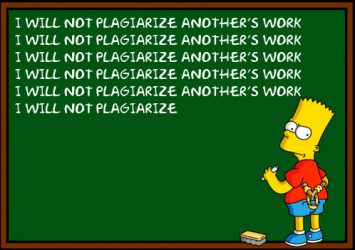Dos and Don’ts of Using Social Media

Using social media has become an inevitable part of our daily lives, and its impact has grown significantly over the past few years. While social media platforms offer a variety of benefits, it’s important to understand that the content you share online might affect your academic and professional future. Not necessarily negative though, but it all depends on your prudence. As a college student, your social media presence can either help or hurt your college admissions and job applications.
In this blog post, you will find the dos and don’ts of using social media while on the verge of an important milestone, such as college or job application, and in general throughout your life. We hope that this guide will help you navigate the world of social media and present yourself in the best possible light.
Do: Create a Decent Profile
One of the most important things you can do to make sure that your social media works in your favor is to create a profile that you are not ashamed of. This means using a profile picture that portrays you in a positive light and writing a clear, concise bio that would highlight the main things about you: your education, your job experience, and your achievements. You should also ensure that your profile is complete and up-to-date, so that potential employers or college admissions officers can easily access your information.
Don’t: Post Inappropriate Content
One of the biggest mistakes you can make when it comes to social media is posting inappropriate content. This includes posts or images that contain profanity, drugs, alcohol, or anything that might be considered offensive or derogatory. It also means that you need to be aware of modern social media etiquette and the topics or terms that are not appropriate. Yes, it also applies to memes that you repost. Not only can this content hurt your chances of getting into college or landing a job, but it can also damage your reputation and relationships with others.
Do: Share Your Accomplishments
Social media is an excellent platform to share your accomplishments and showcase your skills. If you have achieved something noteworthy, such as winning an award, completing an internship, or volunteering for a nonprofit, share it on your profile. It might seem a little braggy but if it helps you get into the college of your dreams, then it is worth it.
Don’t: Over Share Personal Information
While it’s important to be authentic and genuine on social media, it’s equally important to be cautious about how much personal information you share. Avoid sharing information that might compromise your privacy or put you in a vulnerable position. This includes sharing your personal information or your deep thoughts like in a diary that might be not the best fit for an open profile. Remember that sharing your personal information like your address on social media is not good in any case because it might cause you trouble.
Do: Connect with Professionals in Your Field
When it comes to career tools, social media can help you discover some pretty good opportunities that will cost you nothing. The ability to connect with professionals in your field is what you might want to try as a part of your career development. Such can be done on almost any platform, but the most result you might get if trying it on LinkedIn or similar websites. You can use social media to follow thought leaders, industry experts, and potential employers. This can help you stay up-to-date on industry trends, job openings, and career opportunities as well as even make acquaintances with many interesting people.
Don’t: Argue Online
The Internet is full of people with differing opinions and beliefs. While it’s important to be open-minded and respectful of others, it’s equally important to avoid engaging in online arguments or debates. These types of interactions can be viewed as unprofessional and can damage your reputation.
Do: Use Social Media as a Portfolio
Use social media platforms to show yourself, your art, and your skills. If you are a graphic designer, photographer, or writer, use your social media accounts as a portfolio to display your work. This can be a great way to attract potential employers or clients and demonstrate your creativity and expertise.
Don’t: Post Negative Things
Even if you are unhappy with your current or former employer or workplace, it’s important to refrain from posting negative comments about them on social media. If you have seen some ranting videos and are tempted to do the same when you face difficulties in your current position, please think twice. These types of posts can be seen as unprofessional and can harm your chances of finding future employment as you might be seen as someone sharing too much about someone’s business.
Do: Network on LinkedIn
LinkedIn is a social media platform that is specifically designed for professional networking and job finding. If you’re not already on LinkedIn, create a profile and connect with professionals in your field. This can help you build relationships, find job opportunities, and gain valuable insights into your industry.
Don’t: Use Slang or Text Language
Don’t forget to maintain a level of professionalism. Avoid using slang or text language when communicating with potential employers or college admissions officers. Use proper grammar, punctuation, and spelling to convey a professional image. Even if it is communication online and on social media, remember that is very different from the ones you might have with your friends.
Do: Be Mindful of Your Social Media Activity
When it comes to social media, it’s important to be mindful of a. This includes being aware of who you follow, what you post, and what you share. Remember that everything you do on social media is a reflection of your personal brand and can impact your academic and professional future. Moreover, it’s very hard to erase something said on social media forever – many celebrity cases are proof of that.
Don’t: Ignore Privacy Settings
It’s important to understand and utilize the privacy settings on your social media accounts. This can help protect your personal information and ensure that only those you want to see your content have access to it. Take the time to review and adjust your privacy settings on a regular basis.
In conclusion, social media can be a valuable tool for college students in the admissions and job search process. By following these dos and don’ts, you can optimize your social media presence and present yourself in the best possible light. Remember to be authentic, professional, and mindful of your activity on social media. By doing so, you can increase your chances of success in the college admissions and job search process.









